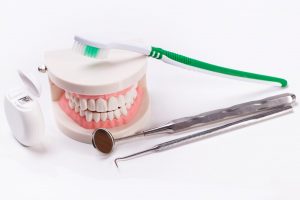Pregnancy gingivitis. Pregnancy is a time full of changes, both internal and external. Lifestyle adjustments are sure to follow once a person gets a positive pregnancy test, but many differences will most notably be occurring in the individual’s body.
Growing a human being is no small feat, and it includes a multitude of hormonal changes that influence the body in various ways. Some of these include weight gain, widening of the hips and rib cage, stretch marks, brittle hair and nails, body temperature fluctuation, swelling of the feet, and more.
However, something unusual many women experience during this life-changing time is pregnancy gingivitis, a gum disease. What exactly is pregnancy gingivitis? What are some of the most noticeable signs of gingivitis? Furthermore, is there an effective way of treating gum disease?

What is Gingivitis?
Gingivitis refers to a common and mild form of gum disease, often affecting the gingival area, the part of the gum around the base of the teeth. The most prevalent cause of chronic gingivitis is poor or a complete lack of oral hygiene. Some signs of gingivitis include irritation, swelling, inflammation, and redness.
Other common causes of gingivitis include:
- Plaque buildup: The accumulation of bacterial buildup around the teeth triggers an immune response which may lead to the destruction of gum tissue.
- Diseases: Some diseases such as cancer, HIV, and diabetes are more susceptible to gingivitis.
- Smoking: Individuals who regularly smoke are more prone to bacterial plaque buildup, which causes gingivitis.
- Diet: A lack of Vitamin C can be the cause of some forms of gingivitis.
- Drugs: Some medications may affect the production of saliva, which in turn may cause gingivitis.
- Family history: An individual suffering from chronic gingivitis may have inherited it from a parent, a grandparent, or both.
- Hormonal Changes: Going through significant hormonal changes often leads to more plaque buildup and eventually gingivitis. Some of these hormonal changes include puberty, menopause, the menstrual cycle, and pregnancy.
Pregnancy Gingivitis
As mentioned previously, pregnancy brings with it an array of hormonal changes. One of these changes includes the overproduction of progesterone, which increases the risk of developing bacterial plaque that attacks the gums. Some signs of gingivitis include:
- Bleeding gums
- Swollen gums
- Receding gums
- Bad breath
- Tender gums
- Puffy gums
- Red gums
Women are more susceptible to pregnancy gingivitis during months two and eight, possibly reaching a peak during the third trimester. Pregnant women are also more vulnerable to tooth decay and loose teeth.
Preventing Pregnancy Gingivitis
There are multiple ways for pregnant women to prevent dealing with pregnancy gingivitis:

- Good Oral Hygiene: Brushing teeth twice a day is essential for preventing plaque buildup and lessening the odds of gingivitis. Using a soft toothbrush will also prevent further irritation to the gums. Flossing once a day may be a good idea, too.
- Diet: Maintaining a healthy diet is crucial for both a healthy pregnancy and for preventing gingivitis. Eating whole foods such as fruits, vegetables, dairy products, and whole grains and staying away from sugary beverages like soda and juice will help further prevent pregnancy gingivitis.
- Visit the dentist: The best way to prevent gingivitis is by visiting the dentist for consistent cleaning, at least twice a year, even when pregnant.
Treating Gum Disease
For more developed or severe cases of pregnancy gingivitis, it is essential to visit the dentist to get prescription antibiotics or a prescription-strength mouthwash. In the most advanced scenarios, surgery may be necessary.
It is also crucial for a dentist to know of any allergies or additional medication their pregnant patient may be taking to avoid any potential side effects by drug interactions.



